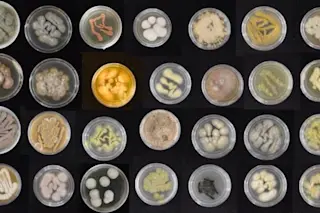The real impact of climate change depends on tiny organisms we can’t even see, argues an international panel of more than 30 microbiologists in a consensus statement published Tuesday.
Microbes, or microorganisms, are any organism or virus invisible to the naked eye. Numbering in the nonillions (in the U.S., that’s 10,000,000,000,000,000,000,000,000,000,000, or a 10 followed by 30 zeros), they make up the “unseen majority” of life on Earth, according to the scientists. Microbes not only contribute to how fast the climate changes, but to our ability to mitigate and adapt to it.
“[Microbes] support the existence of all higher lifeforms and are critically important in regulating climate change,” Ricardo Cavicchioli, a University of New South Wales environmental microbiologist and co-author on the paper, said in a press release. “However, they are rarely the focus of climate change studies and not considered in policy development.”
Now, Cavicchioli and his co-authors hope ...














